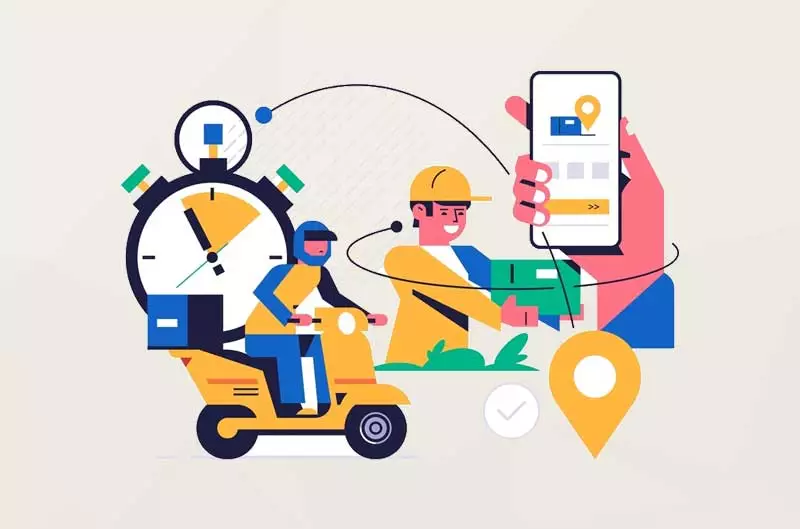LOJİSTİK VE FULFİLLMENT ARASINDAKİ FARKLAR NELERDİR?
Birçok ticari işletme, ürünlerinin satışından sonra da süreci yönetmek zorundadır. Lojistik ve fulfillment kavramları, ürünlerin üreticiden tüketiciye ulaşma süreciyle ilgilidir. Ancak, bu iki kavram bazı noktalarda birbirinden ayrılır. Lojistik ve fulfillment arasındaki farklar nelerdir?
Lojistik Nedir?
Lojistik, bir tüketim malının satıcıdan çıkıp alıcıya ulaşana kadar olan süreçte taşıma, depolama, planlama ve yürütme faaliyetlerini ifade eder.
Lojistik faaliyetlerinde amaç, gereksinim duyulan ürünün müşteriye uygun maliyetlerle ve gereken zamanda ulaştırılmasıdır. Lojistik, nakliye ve dağıtım kavramlarıyla sıkça karıştırılan bir kavramdır. Nakliye, ürünün üreticiden tüketiciye sadece ulaştırılması aşamasını kapsar. Ancak lojistik; fiziksel dağıtım, nakliye, depolama, gümrükleme, ambalajlama ve stok yönetimi gibi aşamaları içeren çok daha geniş bir süreci ifade eder.
Lojistik Neden Önemlidir?
Teknolojinin hızla gelişmesi e-Ticaret kavramının da önem kazanmasına neden olmuştur. Bu da üretici ile tüketici arasındaki tüm süreçlerin etkin bir şekilde yönetilmesi ihtiyacını artırmıştır. Lojistik tam da bu noktada oldukça kritik bir önem taşır. e-Ticaretin hızla yaygınlaşması ile birlikte ürünlerin hızlı ve uygun maliyetli bir şekilde taşınması ihtiyacı da giderek artmıştır. Böylece lojistik süreçlerinin sürekli olarak iyileştirilmesi gerekmiştir. Sipariş süreçleri ile ilgili verilere erişimde sorun yaşanması halinde envanter, teslimat, tedarik zinciri gibi adımlarda da sorunlar yaşanması, lojistik sürecinin aşamaları arasındaki ilişkinin önemine bir örnektir. Daha iyi bir müşteri deneyimi için üretim oranları, envanter kontrolü, depo alanının etkin kullanımı gibi lojistiğe bağlı tüm basamakların sorunsuz işlemesi gerekir.
Fulfillment Nedir?
Fulfillment, firmaların e-Ticaret faaliyetleri sırasında iş yükünü hafifletmek amacıyla başvurdukları sistemdir.
Türkçe karşılığı sipariş karşılama olan fulfillment, bir işletmenin sipariş alması ile başlayan ve siparişin tüketiciye ulaşmasıyla tamamlanan süreçte meydana gelen tüm e-Ticaret faaliyetlerini tek sistem üzerinde toplar. Bu sistem, e-Ticaret faaliyetlerinin yanında tasarım, yazılım ve teknik donanım konularında işletmeye destek sağlar. Bu sayede maliyetten ve zamandan tasarruf edilir. Fulfillment sürecinde uygulanan adımlar şunlardır:
- Depo yönetimi,
- Sipariş yönetimi,
- Ürünün paketlenmesi ve nakliye süreci,
- Müşteri iletişim desteği.
Fulfillment Hizmetini Kimler Kullanabilir?
Fulfillment hizmetini e-Ticaret faaliyetlerine yeni başlayan ya da halihazırda profesyonel olarak faaliyetlerini sürdüren tüm işletmeler ve şirketler kullanabilir. Bu şirketler ürünlerin teslimat sürecini hızlandırmak ve buna bağlı olarak müşteri memnuniyetini artırmak için e-Ticaret fulfillment hizmetinden faydalanmayı tercih edebilir. Büyük ya da küçük fark etmeksizin farklı ölçekte pek çok işletmenin faydalanabileceği bu yöntemi her işletme kendi ihtiyacına yönelik kullanabilir. Örneğin; kimi işletme ürün teslim süresini kısaltmayı amaçlarken, kimi işletme müşteri ile etkileşimi sağlamak için fulfillment hizmetinden yararlanmayı tercih edebilir.
Fulfillment Hizmetinin Avantajları Nelerdir?
Maliyetten ve zamandan tasarruf etmek isteyen firmalar tarafından tercih edilen bu sistem ile e-Ticaret hizmetleri tek noktada toplanır. Fulfillment ile bir projeyi başlatan firmalar, bu projede teknik yönden ya da tasarım ve yazılım noktasında süreç yönetmek zorunda kalmaz. Bunun yerine fulfillment hizmeti veren farklı bir firma ile anlaşarak bu ihtiyaçları o firmadan talep eder. Böylece bu hizmeti üstlenen firma teknik ve operasyonel ihtiyaçlarından depo hazırlıklarına kadar gereken tüm hazırlıkları tamamlar. Satışı yapılması planlanan ürünler depolanır. Mail adresi, telefon numarası gibi operasyonel bilgiler hazırlanır. Sağlanan bu hizmet ile hizmeti alan firma maliyetleri düşürmeyi ve satışlarını arttırmayı amaçlar. Ürünler kısa sürede satılabilirken, bunların müşterilere ulaşma süresi de kısalır.
Lojistik ve Fulfillment Arasındaki Farklar Nelerdir?
Lojistik ve fulfillment kavramlarına ilk bakıldığında birbiri ile oldukça benzer bulunabilir. Hatta bu kavramlar birbirlerinin yerine kullanılabilir. Ancak, bu iki kavram birbirinden farklıdır. Her ikisi de malın üreticiden çıkıp tüketiciye ulaşması arasındaki süreci kapsar. Fakat bu süreç içinde iki kavramın uyguladığı adımlar farklıdır. Lojistik, dijital ya da fiziki tüm alım satım süreçlerinde kullanılır. Fulfillment ise özellikle e-Ticaret alanında etkin bir şekilde kullanılmaktadır. Bu iki yöntemin sahip olduğu aşamalar şunlardır:
Lojistiğin aşamaları:
- Nakliye ve fiziksel dağıtım,
- Tedarik zinciri,
- Stok yönetimi,
- Depolama,
- Paketleme.
Fulfillment’in aşamaları:
- Depo yönetimi,
- Sipariş yönetimi,
- Lojistik yönetimi,
- Müşteri ilişkileri.
Yukarıdaki sıralamadan da anlaşılacağı üzere lojistik kavramı fiziki süreçleri kapsarken, fulfillment kavramı daha çok yönetim süreçlerini kapsar. Lojistik bünyesinde her adım birbiri ile bağlantılı bir şekilde ilerleyen birer süreç olarak karşınıza çıkar. Fulfillment ise firmaların ihtiyaçlarına göre yukarıda sayılan hizmetleri sağlar. Bu hizmetler belirli bir sırada olmak zorunda değildir. Fulfillment aynı zamanda yazılım ve tasarım gibi dijital faaliyetleri de bünyesinde barındırır. Sağladığı hizmetleri tek çatı altında toplayarak firmaların ihtiyaçlarına cevap verir.
Finansal Faaliyetlerinizde Ifastürk’ten Yararlanın!
e-Ticaret şirketinizin kuruluşundan finansal süreç yönetimine kadar pek çok konuda Ifastürk’ten faydalanabilirsiniz. Vergisel işlemlerinizi yönetirken kanun değişikliklerinden anında haberdar olabilir, e-Dönüşüm uygulamalarını kullanarak tüm faturalama süreçlerinizi tek platformda yönetebilirsiniz. Daha ayrıntılı bilgi için bizimle iletişime geçebilirsiniz.










Yorumlar